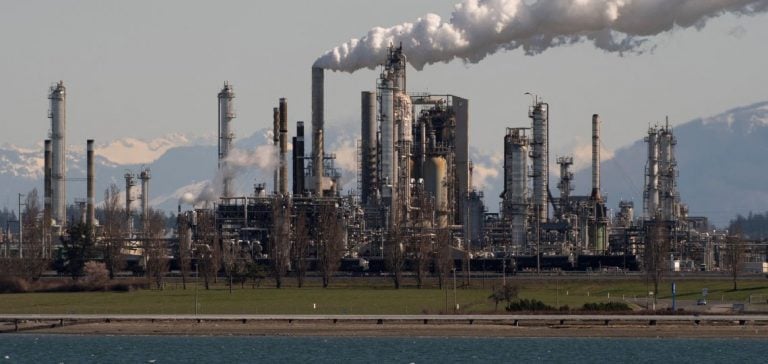Growth in global oil demand, historically driven by China, is slowing considerably.
The International Energy Agency (IEA) reports that demand growth is now expected to remain below 1 million barrels per day (b/d), well below past forecasts of between 1.5 and 2 million b/d.
This slowdown is mainly attributable to the deceleration of the Chinese economy, once one of the driving forces behind global oil consumption.
Fatih Birol, Executive Director of the IEA, points out that China accounted for over 60% of the growth in global oil demand over the last decade.
However, the world’s second-largest economy is now posting annual growth of around 4%, a far cry from the double-digit performance seen just a few years ago.
This economic decline is directly reflected in the downward revision of short- and medium-term oil consumption forecasts.
Global production up despite slowdown in demand
While demand for oil is growing at a slower pace, global production continues to rise.
According to analysts at S&P Global Commodity Insights, non-OPEC (Organization of the Petroleum Exporting Countries) production is set to increase by 1.55 million barrels per day by the first quarter of 2025.
This increase is largely driven by the “American quartet” comprising the USA, Canada, Brazil and Guyana.
Thanks to their extraction and production projects, these countries are helping to keep supply high, thereby creating downward pressure on oil prices.
Canada, in particular, stands out with a projected increase of 315,000 barrels per day by early 2025.
This growth is linked to the resumption of activity in the oil sands, following the maintenance work carried out in the second quarter of 2024.
At the same time, projects to de-bottleneck Canadian production infrastructures will further increase export capacity, reinforcing the positive supply dynamic.
A direct impact on crude oil prices
The combined effects of slowing demand and rising global production are already being felt on financial markets.
The price of a barrel of West Texas Intermediate (WTI) for delivery in November fell by 63 cents to USD 70.37.
This drop is mainly due to the gloomy economic outlook in the United States and Europe, where manufacturing indexes are down.
Oversupply is also helping to keep prices in check, despite geopolitical tensions, particularly in Libya and the Middle East.
Although these regions are facing production disruptions due to internal conflicts, they have not been sufficient to reverse the downward trend in crude prices.
Prospects for non-OPEC producers
In this context, non-OPEC producers are playing an increasingly central role in the market balance.
Continued increases in production in Canada, the United States, Brazil and Guyana are offsetting declines in some regions of the world.
The United States, with its dynamic oil sector, continues to be a key player on the global energy scene, reinforcing its energy independence while flooding the market with new volumes.
Brazil, for its part, continues to develop its offshore oil fields, while Guyana, still in its infancy, sees its production prospects soar with new exploration projects.
Together, these countries make an essential contribution to global supply, guaranteeing the relative stability of the oil market despite geopolitical uncertainties.






















